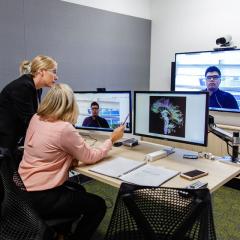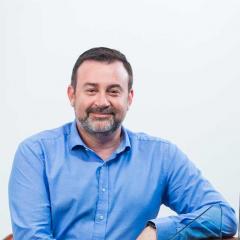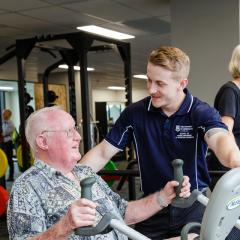Micro and nano plastics are small pieces of plastic that are known to pollute the environment but little is known about human exposure.
Researchers from QAEHS are working on developing methods to quantify human exposure via air, food and water.
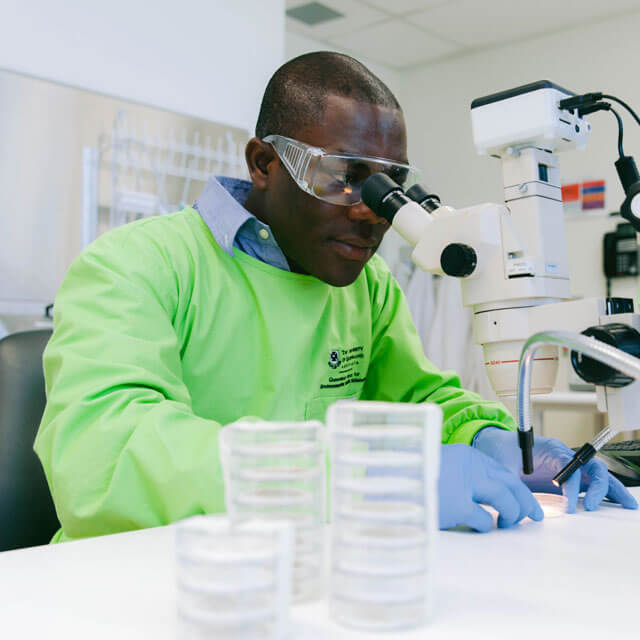 Elvis Dartey Okoffo
Elvis Dartey Okoffo
What is your background?
I am from Ghana. I completed my undergraduate studies in environmental science at the University for Development Studies in Ghana, followed by postgraduate studies in environmental science at the University of Ghana.
What are your research interests and what is your PhD focus?
Plastic debris is accumulating in the natural environment due to its limited recovery and durability. The breadth and scope of how plastics may be introduced into soil systems is not yet fully researched or understood, however it has been recognised worldwide that they can be introduced into soils through the common practice of applying biosolids (treated sludge) to agricultural land.
Agricultural soils in Australia annually receive about 176,000 tonnes of biosolids as soil amendments. No detailed studies have been performed to characterise and estimate the amount of plastic particles that are in biosolids intended for agricultural land applications. For the first time my PhD research work hopes to provide useful insights into the level (composition and abundance) of plastic contamination in the soil environment through the application of biosolids as a soil improver in Australia.
What prompted you to apply for a PhD with UQ?
Equipped with state-of-the-art facilities and advanced technology, I knew UQ would offer abundant resources and a comfortable learning environment to an international student like myself. When I found Professor Kevin Thomas as a potential supervisor I knew I wanted to work with him. Kevin is a leading researcher in environmental health science and this is where I aim to be in my research career in the future.
What inspired you to study this area?
Growing up in a rural community in a developing country, I saw farmers applying pesticides inappropriately and with no protective clothing. I watched them spray farms with pesticides without taking any precautions. This instigated my quest to study environmental science and in particular environmental health risks from exposure to contaminants of emerging concerns (CECs).
Can you share some of your highlights so far?
The last six months has been very rewarding academically and personally. The QAEHS community is wonderful and the atmosphere provided by my supervisors, fellow PhD students and the administration team has been so helpful. Currently, I am doing lots of work in the lab using the various instruments to work out the best methodology for my project. We are very lucky to have such high quality instruments and technicians available in the QAEHS facilities.
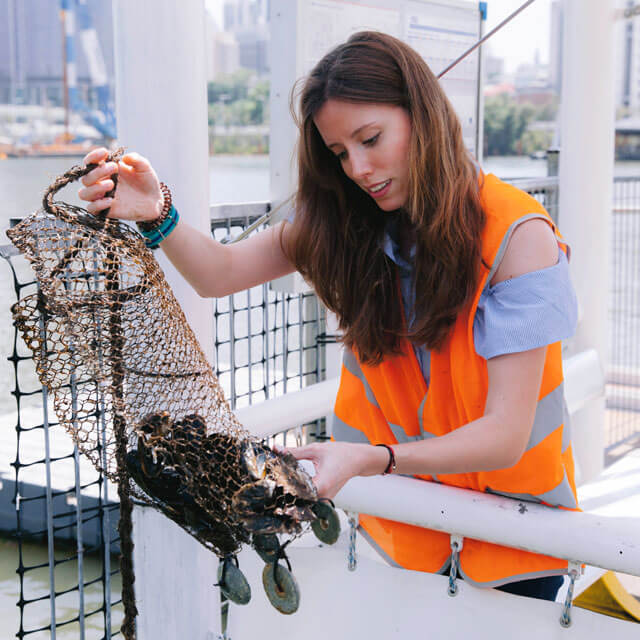 Francisca Ribeiro
Francisca Ribeiro
What is your background?
I am from Porto in Portugal. I completed my undergraduate studies in aquatic sciences at the University of Porto, followed by postgraduate studies in marine biology at the University of Algarve in Portugal.
What are your research interests and what is your PhD focus?
Ecotoxicology has always been my main field of interest in the environmental sciences. I am interested in the effects of stressors across all levels of biological organisation, from the molecular to whole communities and ecosystems. I received a QUEX scholarship to complete a joint PhD program with UQ and the University of Exeter to investigate the risks of dietary exposure to micro plastics and associated chemicals. I am using seafood and in particular oysters to assess the risk of exposure to micro plastics through consumption.
So far, we have deployed oysters in several aquatic locations, left them for 14 days before collecting and analysing them. We are trying to develop the best techniques to quantify the micro plastics.
What prompted you to apply for a PhD with UQ?
My postgraduate studies gave me experience in this area, and I knew that the team and supervisors at UQ were highly regarded in the field.
What do you enjoy about studying at UQ and living in Brisbane?
It’s such a friendly environment here at QAEHS. Everybody is really nice and we help each other. Brisbane is a great city, has good weather and the people are relaxed.
What advice would you give students thinking about a research career?
In my experience I found research to be quite testing. All of a sudden you realise what you’re doing isn’t working so you have to move in a different direction and sometimes it can be frustrating but you just have to keep going. You also need to love what you’re doing and be passionate about it. If there is an opportunity to travel somewhere I would say go for it because it’s an amazing experience.
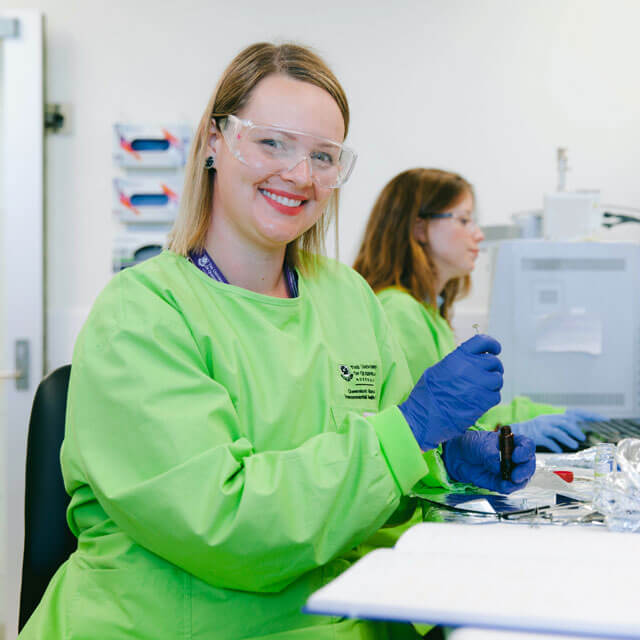 Stacey O'Brien
Stacey O'Brien
What is your background?
I’m from Brisbane originally but I relocated from the Sunshine Coast for this opportunity. I have completed a Bachelor of Business Management and Master of International Commercial Law at UQ.
What are your research interests and what is your Master of Philosophy focus?
I have a strong interest in caring for the environment and sustainability. The focus of my Master of Philosophy project is examining micro plastics in the environment. I have a strong interest in all elements of this emerging field with a particular interest in human and public health.
I would like to see if micro plastics are in our air, review their sources, how they behave, if we breathe them, what they do in our bodies, how we expel them, and understand whether they have any health implications.
What inspired you to study this area and apply for a Master of Philosophy with UQ?
I attended a seminar at the Brisbane Science Festival and was horrified by what I heard from the panel of speakers. I was inspired, and couldn’t stop researching, reading and learning about micro plastics. After looking online for scholarships, I met QAEHS Director Professor Kevin Thomas and was thoroughly impressed.
Can you share some of your highlights so far?
I am loving every part of my studies so far. I am still in the formative stages so there is a lot of method development, learning to use the machines and trying different techniques.
What’s really exciting about investigating micro plastics in the air is that it can evolve into so many different avenues.
What advice would you give students thinking about pursuing research?
It’s definitely rewarding. No two days are the same. Your brain explodes at how much you learn.
Words: Kirsten O’Leary

